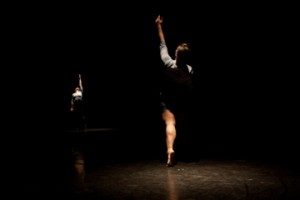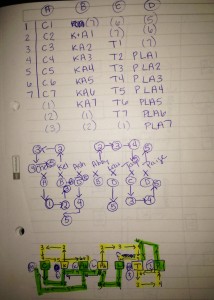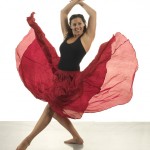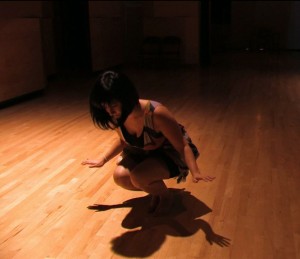
Identity Crisis
There is something about curling up with a cup of coffee on a Sunday morning that is such a relief at the end of a long week. Before anyone wakes, in the stillness and the sunshine, I like to sit and ponder the effects of my week. Occasionally, I like to journal, jotting down my thoughts on conversations that never happened, dreams and imagery, and my thoughts on “grieving the loss of grad school”… wait… did I really write that? That’s a little dramatic; I mean grief? How about trauma? Nope, that’s even more intense… On this particular Sunday morning I decided to reflect on some old journal entries from my first year out of grad school, and sure enough, I had described my first year as bereavement.
It’s been four years since I have been a student of the SHSU dance program, and I am in my twenty-eighth year as a student in the school of life. I’m currently in the process of experiencing some real life grief with the recent death of my mother. So upon rediscovering this part of my life occurring directly after graduation, which, by the way, seems miniscule now, I decided not to judge myself too quickly, and to take some time to investigate the meaning of the words I had written.
I discovered that
- Bereavement can mean “suffering deprivation or loss by force.”
- Grief can be defined as “keen mental suffering or distress over affliction or loss.”
- Trauma can be described as “a powerful shock that can have long lasting effects on body and mind.”
This last definition rang truer to me than any of the other words. Trauma is something I can definitely relate to. I have certainly suffered mental and physical trauma with the numbing news that my mother no longer exists here on earth. It has been an event that has permanently changed my immediate environment, or kinesphere, if you will. It looks different to me, and I also don’t react to people and circumstances within in it the way that I did before. In this way, it has changed not only how I perceive my circumstances, but also who I am in relation to those circumstances, which inevitably has led to a growing loss of identity.




![858671_563107497041148_2128003440_o-1[1]](https://www.framedance.org/wp-content/uploads/2013/08/858671_563107497041148_2128003440_o-11-300x199.jpg)


